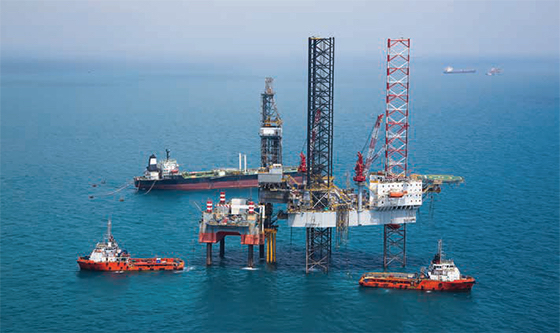Oil prices rose for a third consecutive session on Monday, reaching their highest levels since November, as Saudi Arabia and Russia extended their supply cuts and China’s economic recovery boosted demand.
Brent crude futures, the global benchmark, climbed 0.8% to $94.64 a barrel, while U.S. West Texas Intermediate crude futures rose 0.9% to $91.55 a barrel.
The oil market has been supported by the decision of the OPEC+ group, led by Saudi Arabia and Russia, to maintain their output reductions until the end of the year. The group agreed to cut production by 5.8 million barrels per day (bpd) from October levels in an effort to balance the market and support prices amid the COVID-19 pandemic.
The market has also been buoyed by signs of strong demand recovery in China, the world’s largest oil importer. China’s central bank announced a reserve ratio cut last week, injecting liquidity into the economy and boosting growth prospects. China’s crude oil imports rose 11% in August from a year earlier, reaching 11.18 million bpd, according to customs data.
“China’s stimulus policy, resilient U.S. economic data, and OPEC+’s ongoing output cuts are the bullish factors that support the oil market’s upside movement,” said CMC Markets analyst Tina Teng.
Analysts expect the oil market to tighten further in the fourth quarter as demand outstrips supply and inventories decline. ANZ analysts said the market could face a 2 million bpd deficit in the fourth quarter, leaving it vulnerable to price spikes in 2024.
“AI labs and independent experts should use this pause to jointly develop and implement a set of shared safety protocols for advanced AI design and development that are rigorously audited and overseen by independent outside experts,” the letter said.
The letter was signed by more than 1,800 people, including prominent figures such as Tesla CEO Elon Musk, Apple co-founder Steve Wozniak, and cognitive scientist Gary Marcus. It also received support from Amazon, DeepMind, Google, Meta, and Microsoft engineers.
However, the letter also faced criticism from some researchers whose work was cited as evidence of the dangers of AI. They argued that the letter was unclear about what constituted “more powerful than GPT-4” and that it exaggerated the risks of AI without acknowledging its benefits.
The letter also had some issues with verification, as some signatories were found to be fake or did not support it. For example, Meta’s chief AI scientist Yann LeCun, clarified on Twitter that he did not sign the letter and that he disagreed with its premise.
The letter reflects the growing debate over AI’s ethical and social implications as the technology becomes more capable and ubiquitous. While some see AI as a source of innovation and progress, others warn of its potential harm to humanity and society.



